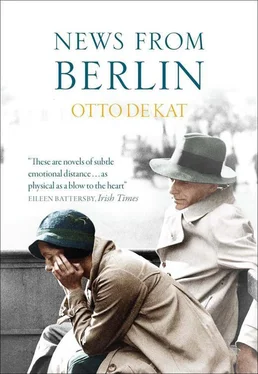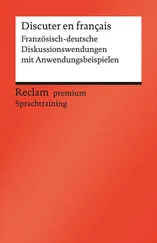Kate enjoyed visiting the wards, or the smaller sick rooms with only one or two occupants. She came in from the open air, fresh from the street with a newspaper under her arm, into a world that stood still. The domain of the infirm: a small town of beds criss-crossed by lanes reflecting a hierarchy of diseases and injuries, a laboratory of whispers and groans and tears interspersed now and then with a smile or a kind word. An incomprehensible world of gestures and codes and nameless sorrow, all under the harsh rule of war, the feared and hated war, the spectre all endeavoured to ignore, in vain.
*
How the young black soldier managed to make landfall in the Richmond Royal Hospital was unclear. He had been brought over from Africa badly wounded, no-one expected him to pull through. But he recovered, little by little. She visited him every day, remaining at his bedside for an hour or so, giving him drink when he was thirsty or plumping his pillows. Small acts, to be sure. The boy responded almost exclusively with his eyes, he hardly spoke. Sometimes he said “Thank you” in an unfamiliar accent, dusky and warm. More often he dipped his head, or briefly lifted his hand.
Kate knew his name from the medical dossier: Matteous Tunga, soldier in an umpteenth infantry division, wounded en route to Abyssinia. Sucked into the morass of the war, fighting here, fighting there, winning, losing, marching on, nearly drowning, overtaken by storms, caught in a sniper’s sights.
Matteous occupied a cubicle on his own – by chance or by design? – and met Kate’s eyes the first time she put her head round the door. He lay very still, lifted a few fingers, said nothing, yet all of him cried out for answers. Kate stepped inside, patted the blanket and told him her name. She asked if there was anything she could do for him. No response. She saw the fever in his eyes and hesitated before sitting down on the chair beside his bed. The cramped space, designated for the seriously injured, was more of a storeroom for medical equipment with a bed and a chair squeezed in. Fortunately, there was a window overlooking a courtyard, or rather, there were treetops to be seen and beyond them the wall of another building. The hospital bore a close resemblance to its supply station: the military barracks. Efficient, austere, straightforward. Only the inner courtyard was spared the rigour, having been turned into an English garden with rose beds, apple trees, a long oval beech hedge, jasmine bushes, poppies.
Kate stayed no longer than five minutes the first time. During that short visit she offered him a glass of water and helped him as he drank, her hand cupping the nape of his neck, where the short, bushy hair began. She sensed the fever rising from him, and caught the unusual scent of his skin. She had never been so close to anyone so dark. A wounded man, a black boy thousands of miles from home, a frontline soldier in London, of all places – she would have thrown her arms about him had she dared.
“I’ll be back tomorrow,” she said. His eyes were closed, but he gave a slow nod of acknowledgement. As Kate was leaving she noticed the sun slanting across the bed. How black can a person be, she wondered.
She visited him day after day, week after week, for months on end. His small room became a second home to her, with each hour-long encounter an exercise in taciturnity, an exchange of silences. After a time she could feel that he looked forward to her visits, and that he relaxed the moment he saw her.
“Matteous,” she murmured, and at once he turned his head on the pillow to face her. A clear-eyed, gentle look, less fevered than before. He smiled, extended a hand, which Kate clasped, and they continued to hold hands for a while. He even chuckled a little, as though rediscovering the ability to laugh. She let go of his hand, for fear of embarrassing him. She was determined not to mother him too much, though all her old instincts were coming to the surface. Once a mother and that was it: you were lost for the rest of your life, or enslaved, or whatever you liked to call what motherhood did to women. Beneath the surface lies a reservoir of talent for loving, according to some doctor Kate had met. That’s as maybe, she thought, but having to carry a reservoir around sounded rather burdensome. Doubtless a man’s idea. A son’s. And a rather technical way of putting it, too. Talent, reservoir, an odd choice of words for something as elusive and inexplicable as love.
Kate usually said “Matteous” more than once – she so liked the sound of his name. His reaction was to bring his fist to his chest, on the side of his heart. A quick, fluid gesture, much as a Roman Catholic makes the sign of the cross.
Growing accustomed to his garbled English and French, she came to understand him better. The words began to flow, gradually becoming sentences. And so, after weeks of little more than gesticulations and looks, they were able to carry on a conversation. Matteous talked, and she listened to his gravelly, cautious voice seeking to temper the horrors he related. It was hard for him to get his account in the proper order. His battalion was from the Congo, conscripted by the Belgian governor of the colony. Matteous himself was Congolese, aged twenty-three or thereabouts. The village he grew up in was little more than a scattering of huts, the surrounding forest had been his teacher. They were supposed to drive the Italians out of Abyssinia, and set out from Léopoldville northwards to Sudan, and on from there. From the fragments of Matteous’s story Kate was able to piece together the route taken by his division, not that it really mattered in which direction they had been heading, and whether on foot or in vehicles. She did not need to know exactly where they did battle or where they encamped. She did not ask, and what he told her was sketchy. His journey from Africa to England came out as planes with mattresses on the ribbed steel deck, agonies of pain, bumping along on stretchers, manhandled into the backs of trucks, men in uniform abandoning him in the blistering sun to await onward transportation.
“They can bear that,” one of them had said. They, the others, the blacks, they didn’t mind a bit of sun. In his feverish brain the remark had taken root.
He had saved the life of a Belgian officer, and had suffered major injuries in the process. The officer insisted on his being taken to London come what may, to save his life in turn. He did not know the name of the officer or what had become of him, but in the meantime here he was, stuck in this hospital for an eternity, and he was desperate to get out, go back, where to he did not know. Kate listened to him and promised to return the following day.
For several days that followed Matteous rambled on, each time beginning his journey from Léopoldville afresh, along the endless River Congo and onward to Abyssinia to throw out the Italian, whoever that might be. The river was a thousand miles long, she discovered.
“Snipers, Miss Kate, snipers in the trees.” They had fired at the officer from an ambush; where this had taken place he could not recall. He had managed to drag the officer away in the nick of time, and in so doing ended up with a bullet in the back and another in his foot. The odd thing was that he had been able to carry on walking for a further hundred metres; he had felt the impact of the bullets, but no pain.
Matteous spoke in simple words, with long pauses. Sometimes he dozed off, and she would leave without rousing him. Rain against the window, stormy skies, sunshine, March, April, May, from winter to spring: the boy was on the mend, watched over by Kate. Miss Kate, who helped him move into the main ward once he had sufficiently recovered.
*
Leaning over her balcony, Kate reflected on Matteous. He would be discharged from the Richmond in two days’ time, but where was he to go?
Читать дальше












